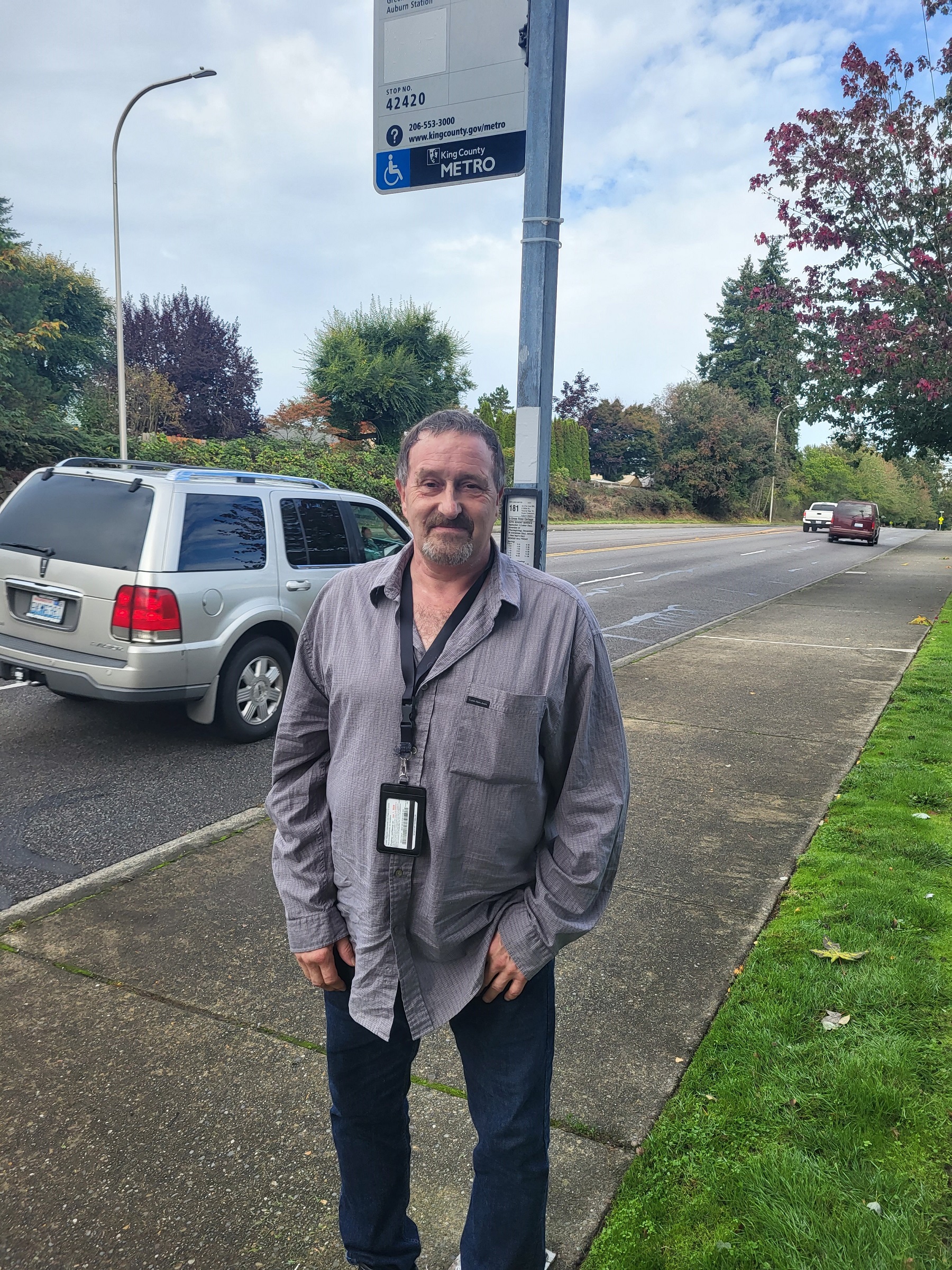Charles Accepts In-Jail Treatment Ending the Revolving Door to Incarceration

It is with great pride we share the story of Charles, who received in-jail treatment, support services and housing after struggling for years with a substance use disorder and incarceration.
Charles reported that he experienced addiction issues for the past 26 years. Charles shared, “I lost it all, slowly at first but then it was all just gone. My wife, the kids, my job and then my freedom.”
In 2006, Charles began the revolving door of incarceration, and was in and out of jail for years before entering prison many more times than he can count. He said, “I say “in and out” of incarceration, but I was mostly in.” Then in November of 2022, Charles was accepted into the King County Corrections-Based Substance Use Disorder Treatment Program at the Norm Maleng Regional Justice Center in Kent, Washington. Pioneer Human Services operates the in-jail treatment program for individuals incarcerated due to a substance use disorder (SUD). In the program, Charles received treatment, support, a referral into residential treatment and the opportunity to learn a new way to live.
Linley Allen, Clinical SUD Manager for the King County Corrections-Based Substance Use Disorder Treatment in-jail treatment program shared, “Charles asked for help. Our Modified Therapeutic Community (MTC) team that serves individuals with mental health and substance use disorders was willing and ready to give him the support and encouragement he needed to finally leave drugs behind. We were grateful to have the assistance and collaboration from various Pioneer programs including the co-occurring team at the North Sound Behavioral Health Treatment Center in Everett, Pioneer’s Foundational Community Supports (FCS) team and peer supporters to help Charles make the changes necessary for long-term recovery.”
In March of 2023, Pioneer’s in- jail staff reached out to the Foundational Community Supports (FCS) team. The FCS team coordinated a referral for support to access grant funds for Charles so he could get hygiene and clothing items to feel his best once he arrived at the North Sound Behavioral Health Treatment Center (NSBHTC) for inpatient/residential treatment.
Once Charles arrived at the NSBHTC, he was introduced to peer bridger, Kady Woodard, and immediately felt reassured. Charles thought, “Things just might work out after all!” Kady worked with Charles on a plan for moving into Oxford housing when he discharged and she supported him in activating his DSHS benefits and setting goals to rebuild his relationship with his now adult children.
After Charles completed his treatment at the NSBHTC, Kady referred him to an FCS housing specialist, Kelly Phelps, who works in Pioneer’s King County area. Kelly immediately jumped in and supported Charles as he started living at Oxford House. Charles struggled to believe he would fit in and did not know what to expect. However, as he pushed through his initial fears, Charles not only fit in but he found purpose and meaning to his life again through this house.
Kelly Phelps said, “It was inspiring to watch Charles begin to believe in himself and his choices, realizing his own strengths. He is now able to build on his confidence everyday with the support of those he has allowed into his new world.”
Currently, Charles serves as his Oxford House president! He is still active in his recovery journey and supports the other members of the home. He shared a proud moment stating, “I am a check signer now – they believe in me and really trust me.”
Charles is continuing to learn to live life in recovery, and he is realizing what it means to have fun without substances. He recently went to a comedy show and attended a dance.
Charles also made the effort to reconnect with his adult children and stated, “My daughter even said she is proud of me – really all of this is just wonderful. I feel great.” He continued, “In all honesty, I know I could not have done this on my own. My FCS contact, Kelly, is so awesome; she lifts me up and reminds me I can do hard things. Also, my counselors from the in-jail and residential treatment center believed in me, and so did Kady, the peer bridger. This means more than I can ever explain.”
